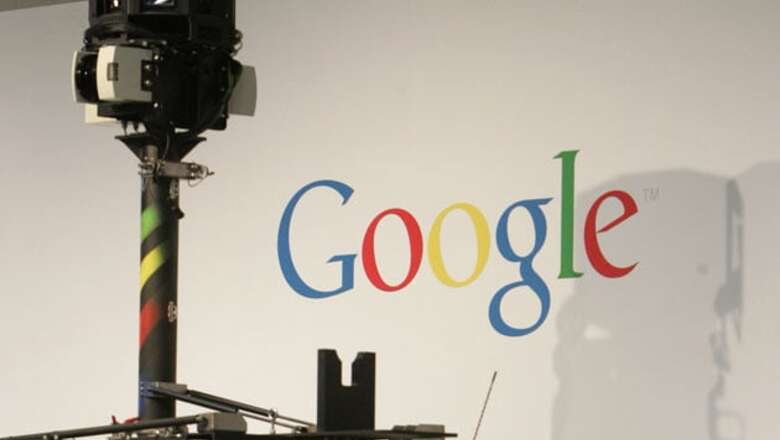
views
Vancouver: Canada's privacy watchdog accused Google Inc on Tuesday of violating the rights of thousands of Canadians by inappropriately collecting their personal information in building its Street View service.
Google must tighten its privacy protection systems to prevent a repeat of the incident, blamed on a careless software engineer, and should get rid of the data it accidentally collected, Privacy Commissioner Jennifer Stoddart said.
"Our investigation shows that Google did capture personal information - and, in some cases, highly sensitive personal information such as complete emails. This incident was a serious violation of Canadians' privacy rights," Stoddart said in a news release.
Google has found itself in the cross-hairs of privacy officials in several countries since it acknowledged in May that the fleet of cars used to take images for Street View were also collecting personal information from unsecured home wireless networks as they drove by.
Google officials said they were unaware that the computer code that allowed the "payload data" to be collected was in the Street View software when it was installed in cars, Stoddart said. The software took pictures of panoramic street-level scenes for Google's mapping service.
"This incident was the result of a careless error - one that could easily have been avoided," the commissioner aid.
Stoddart set a Feb. 1, 2011, deadline for Google to show it has followed her recommendations. She does not have the authority to fine the company, but can take her complaints to Federal Court.
Google apologises
Google said on Tuesday it was "profoundly sorry for having mistakenly collected payload data," but it did not specify what steps it would take.
"We have been working with the Office of the Privacy Commissioner in its investigation and will continue to answer the commissioner's questions and concerns," the company said in a statement.
Analysts downplayed the impact of the announcement on the search engine giant.
"Google was a vacuum cleaner and sucked up information they hadn't really thought through and didn't have a use for anyway," said Iain Grant at telecom consultancy SeaBoard Group. He added that Google would likely agree to delete the payload data.
Stoddart's Google complaint comes as her office is airing renewed concerns about allegations the social network site Facebook has failed to protect user's personal data from being transferred to third parties, such as game developers.
The commission wants to make sure those third parties are complying with Canada's privacy laws, a spokeswoman said.
"We're upset briefly and then life goes on," said Queen's University law professor Art Cockfield. "As long as there is no real sanction to the goodwill of the company that is reflected in loss of future profits they won't change their behavior."
SeaBoard's Grant said the privacy commissioner's more aggressive stance with Google and Facebook is a positive move and that he expected Stoddart to seek to further educate Canadians about privacy issues related to voluntary disclosure of location.
"The next big thing for privacy is probably location-based services," he said, referring to social networking sites that encourage users to share information about where they are and what they are doing.
Stoddart said that Canadian investigators who looked at a sample of the data collected by Google said it included complete emails, email addresses and phone numbers, but that it was not possible to know how much information was collected.



















Comments
0 comment